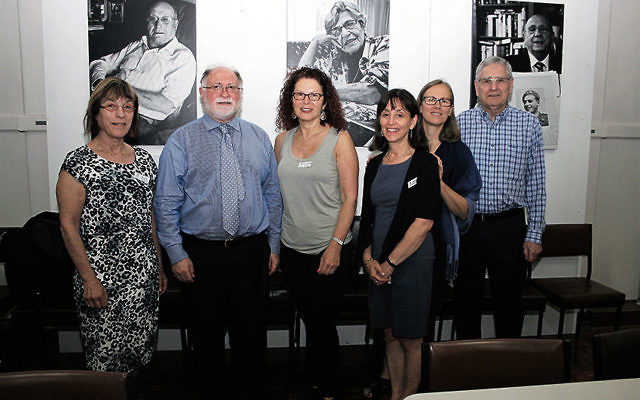Holocaust organisations unite
A REGIONAL body to coordinate Holocaust commemorative and educational organisations in Australia, New Zealand and south east Asia, has been launched at a landmark conference.

A REGIONAL body to coordinate Holocaust commemorative and educational organisations in Australia, New Zealand and south east Asia, has been launched at a landmark conference.
The inaugural Australasian Association of Holocaust Organisations (AAHO) conference, held at Melbourne’s Jewish Holocaust Centre (JHC) on November 12-13, mapped out strategies for cooperation between Shoah-related organisations, not only in Melbourne and Sydney, but in other states, New Zealand, and as far afield as Shanghai and Japan.
JHC executive director Warren Fineberg told delegates that greater coordination was a critical step forward in areas such as sharing information, syncing event calendars, learning from one another’s archiving practices, processing survivor testimonies, and sharing visits by international scholars from areas as diverse as the Refugees Museum in Shanghai and the Sugihara Foundation in Japan.
The conference was attended by representatives from key Holocaust educational institutions such as the JHC in Melbourne, the Sydney Jewish Museum (SJM), March of the Living, Courage to Care and the Gandel Holocaust Studies Program.
Ushered in by John Gandel, chair of Gandel Philanthropy, the two-day event heard from JHC co-president Sue Hampel about AAHO’s origins, and how it has been modelled on the US-based Association of Holocaust Organisations.
Mark Weitzman, a US Holocaust scholar with the Simon Wiesenthal Centre, spoke on “Distortion and the new nationalism”.
Vedran Drakulic, CEO of Gandel Philanthropy, explained the Holocaust Studies Program’s impact on Australian teachers who attend its courses at Yad Vashem in order to deliver accurate, meaningful and appropriate study materials to secondary-school students.
Meeting the looming challenge of imparting the history of the Shoah in a world without survivors was a topic discussed in a round table event chaired by Jayne Josem, JHC curator, with panellists Perry Trotter of Shadows of the Shoah, and Roslyn Sugarman, head curator at the SJM.
Holocaust education’s waxing and waning role in the national education curriculum came under the spotlight in a panel session headed by Hampel and Professor Suzanne Rutland of the University of Sydney’s Department of Hebrew, Biblical and Jewish Studies.
A panel chaired by Dr Adam Brown, senior lecturer in digital media at Deakin University, examined the challenges of Holocaust learning in the digital world.
Emeritus Professor Konrad Kwiet of Sydney University and the SJM discussed contemporary perspectives on the Holocaust.
PETER KOHN

comments